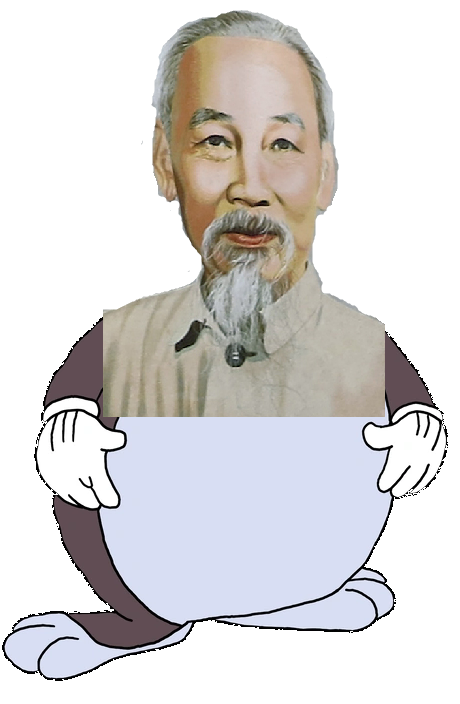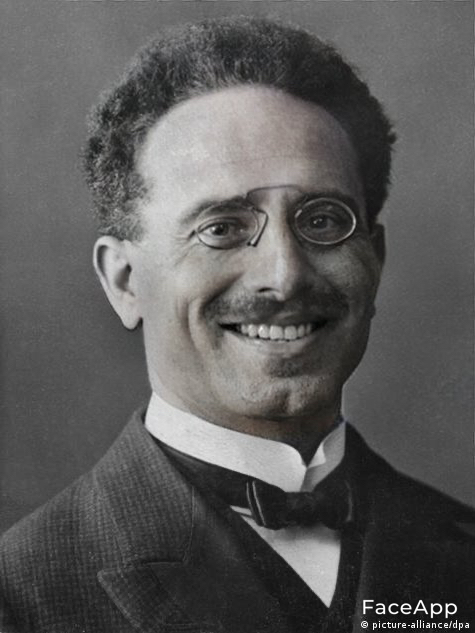Everybody chooses Hitler, even the great minds at :trueanon:
reddit.com/r/TrueAnon/comments/10vjhva/if_you_could_go_back_in_time_and_could_off_one/
But that has to be a waste right? Great Man Theory, dialectical materialism, blah blah
Germany still would've became fascist because of their overwhelming debt to the victors of WWI. They most certainly still would have started World War II in some way. They almost certainly would've also started genociding the disabled, and probably move on the non-Aryans eventually, or at the very least thrown them all in prisons or some internment zone
In an interview by Emile Ludwig
Ludwig: Marxism denies that the individual plays an outstanding role in history. Do you not see a contradiction between the materialist conception of history and the fact that, after all, you admit the outstanding role played by historical personages?
Stalin: No, there is no contradiction here. Marxism does not at all deny the role played by outstanding individuals, nor the fact that history is made by people. In Marx’s The Poverty of Philosophy and in other works of his you will find it stated that it is people who make history. But of course, people do not make history according to their own fancy or the promptings of their imagination. Every new generation encounters definite conditions already existing, ready-made, when that generation was born. And great people are worth anything at all only to the extent that they are able correctly to understand these conditions, to understand how to change them. If they fail to understand these conditions and try to alter them according to the promptings of their imagination, they will land themselves in the situation of Don Quixote. Thus it is precisely Marx’s view that people must not be counterposed to conditions. It is people who make history, but they do so only to the extent that they correctly understand the conditions that they have found ready-made, and only to the extent that they understand how to change those conditions. That, at least, is how we Russian Bolsheviks understand Marx. And we have been studying Marx for a good many years.
Ludwig: Some thirty years ago, when I was at the university, many German professors who considered themselves adherents of the materialist conception of history taught us that Marxism denies the role of heroes, the role of heroic personalities in history.
Stalin: They were vulgarizers of Marxism. Marxism has never denied the role of heroes. On the contrary, it admits that they play a considerable role, but with the reservations I have just made.
Ludwig: Sixteen chairs are placed around the table at which we are seated. Abroad people know, on the one hand, that the USSR is a country in which everything must be decided collectively, but they know, on the other hand, that everything is decided by individual persons. Who really does decide?
Stalin: No, individual persons cannot decide. Decisions of individuals are always, or nearly always, one-sided decisions. In every collegium, in every collective body, there are people whose opinion must be reckoned with. In every collegium, in every collective body, there are people who may express wrong opinions. From the experience of three revolutions we know that out of every 100 decisions taken by individual persons without being tested and corrected collectively, approximately 90 are one-sided. In our leading body, the Central Committee of our Party, which directs all our Soviet and Party organizations, there are about 70 members. Among these 70 members of the Central Committee are our best industrial leaders, our best co-operative leaders, our best managers of supplies, our best military men, our best propagandists and agitators, our best experts on state farms, on collective farms, on individual peasant farms, our best experts on the nations constituting the Soviet Union and on national policy. In this areopagus is concentrated the wisdom of our Party. Each has an opportunity of correcting anyone’s individual opinion or proposal. Each has an opportunity of contributing his experience. If this were not the case, if decisions were taken by individual persons, there would be very serious mistakes in our work. But since each has an opportunity of correcting the mistakes of individual persons, and since we pay heed to such corrections, we arrive at decisions that are more or less correct.
Broke: great man theory
Woke: competent scretary theory
Behind every great man is a hypercompetent administrative assistant and without them the great man is nothing.
Occasionally, history cracks open and one guy in the right place and moment can change everything. Napoleon is probably the most salient example cause Hegel called him history on a horseback. Hitler, I guess I could see him having some influence but he wasn't the comoplete package of organizer, martial genius, orator with the single drive and ambition of your Napoleon. The only other guy I can think of offhand would be Lenin
id go shoot the lady that shot lenin :shrug-outta-hecks:
that or go kill the guy that killed rosa and just intimidate the others with a gun lol
i thought lenin died of a stroke so i looked it up and apparently he died because of "an incurable disease of the blood vessels.", whatever the fuck that means
It was likely a complication from being shot. Medical practices in the early Soviet Union were pretty rough
Nah. Kill Churchill. He was the warmonger of the 20th century. Responsible for more British deaths than anyone else. Staunch defender of empire. The world, especially India, would have been better off without him. He praised Hitler and tried to have a dinner meeting with him in the 30s.
scipio africanus. would be interesting to see carthage lasting longer or maybe even beating rome. yeah that would probably take more than just killing scipio but the world would be radically different, impossible to know what it would look like today if carthage somehow survives
going back in time and giving Hannibal Barca an entire shipment of light artillery because I'm bored and want to see what happens
I would choose Genghis Khan because idk what would happen
monkey paw curls, Sack of Baghdad happens in 1220 under muhammad khwarezmshah instead
I asked ChatGPT if it was ok to go back in time to kill baby Hitler and it tried to both sides it :liberalism:
Columbus, but I ain't going back to kill him; I'm going back to tell the Taino people what that freak will do to them when he
landsshipwrecks his ship.The Europeans were coming no matter what. They had the ships and the capital to build them and the desire to flavor their bland food with delicious spices, and they didn't like paying the prices the damned Turk demanded.
Thomas Midgley Jr.
Great man theory still holds, but removing the person directly responsible for leaded gasoline and chlorofluorocarbons, even if it only delays their discovery and use by a few years, would have a tremendous positive impact on the planet.
Let alone imagining the impact of non-lead-poisoned Boomer generation.
Edit: I'm wrong, see below if you care
The theory that lead exposure was the main or even a significant factor in why American boomers are the way they are is such an obvious op to distract from how twisted American culture makes people that I'm disappointed I see it brought up all the time in commie spaces
https://www.thelancet.com/cms/attachment/afd16ec5-5071-400d-8cf8-5f16ae09e008/gr1_lrg.jpg
Nah, the lead in air over time graph tracks beautifully with the worst people on the planet. No doubt American culture is a fuckin shit show, but it's made worse by the lead in their brains.
Yea nah you're right, I realized my mistake in logic and looked up the lead exposure of Americans roughly half a century ago compared to developing nations today
It was way higher in the past lol
How about Karl Kautsky?
If his reformist ideas don't become dominant in the SPD preceding WW1 and they follow the line of Luxemburg and Liebknecht, how history could've turned out completely different is one of the things that annoys me the most of anything in history.The thought that, if it weren't for the Kautsky SPD(and other socdems in Europe tbf) we might actually already live in a kind of FALGSC like society if they had just taken the correct line.
The possibilities, revolution in Germany(Europe generally), no WW1 and WW2 possibly,USSR and Germany allies not enemies, no purges like they happened, no forced resettlements, no 1930s famine maybe, endless positive potentials not realized because of goddamn sucdems, truly maddening...
So, yeah for those reasons, Karl Kautsky, worst person in history, has to go.
Nah, he wasn't even the worst one. Kautsky at least didn't advocate for African colonies with socialist characteristics like Bernstein.
Allen Turing
on the one hand, he won't be able to break the German codes which probably leads to a more drawn out and deadly WWII. Axis powers still loose. This isn't History Channel -- the Nazis we not on the "verge of greatness" or about to develop atomic weaponry or any of that nonsense yer da is fascinated by.
on the other hand, the timeline for general purpose computers gets shunted back a few decades (maybe even a century...?) -- what does the cold war look like without ARPANET? How does the end of the 20th century play out? How does this change mathematics and physics?
fuck off, poor bloke had it bad enough already. I'm killing the rozzer that put together the case against him for being gay
thinking a lil more, Turing living until the 70s/80s could mean way fancier computers, which means maybe, just maybe, fuckin Cybersyn works out :allende-rhetoric: (please don't ask me how a fancy woodgrain computer could defeat the CIA)
yeah, he did have it rough. I just can't help but wonder what history would look like without his contributions -- he's the hingiest hing-point I can think of.
never mind Turing, how about Alexander Graham Bell? what if we got computers but no Internet?
(Okay I know the needs of the system were such that the multiple people were working on the problem of telephony independently, but he was a piece of shit anyway)
Leader of the GKSD right after being told to assassinate Rosa Luxemburg but before passing those orders onto the rest of the organisation.
This would cause the order to kill her to fall into the cracks, she would not be killed, and I genuinely believe that the German revolution would have occurred if her assassination had not happened. It was the moment that the thread of fate was severed.
Pretty much all of my "go back in time and do something" fantasies revolve around saving Luxemburg. You would avoid nazi germany without killing hitler, world war 2 would be a war between capital and communism in a much more direct manner, and it would be won by communism. I believe the Spanish revolution would also have succeeded with a nearby communist Germany. It all would've cascaded.
I really think that the best possible alternate history scenario for the 20th century is the success of the German revolution. Coming right off the heels of the World War, western capitalists would have an extremely difficult time trying to convince the working class to mobilise and invade Germany yet again. Worst case scenario is that Germany would be the only one to turn to socialism alongside the Soviets, but even then I think socialism would be inevitable. Best case scenario is the domino effect that the Soviets were hoping for, where socialists all around the world become emboldened, better organised and funded, receive international aid and revolution springs up all around the world.
Even if the world didn't go socialist, I still think a German Revolution would have been the deathblow to capitalism.
The Soviet Union's biggest problem was manufacturing capacity. Once they full industrialized partway through WWII they were more than a match for the Axis. Imagine technology sharing between Germany and the SU and you'd get that power 10 years earlier. German scientists would also be managed efficiently rather than by coked up nazis. I'd expect them to be the first ones to get the atomic bomb. I still think that a large-scale war would still have happened but it would be between the new socialist states and capitalism. You'd probably see global socialism before the 21st century or at least a global dominance not unlike the height of western imperialism.
I think you would have to figure out a way to prevent the Vorwarts occupation, which led to hers and Liebknecht's assassination. I think the best chance you would have would be to go back to 1914 and convince Rosa that the break with the SPD and the left wing is inevitable, and they need to agitate and organize and make ready for a split in 1917. Rosa was wrong about the SPD.
I also think if that didn't work you could drop off a copy of Broue's History of the German Revolution to Paul Levi at any point before the March action in 1921, he might have prevented another disastrous loss for conflict-weary German working class.
Germany's descent towards fascism was inevitable when the German revolution failed.
I feel like if you really wanted to prevent the rise of german fascism by killing one guy, you're better off killing Friedrich Ebert.
At first I was surprised that nobody has mentioned Kissenger yet, but upon reflection, I don't think he's really pioneered anything. He has just followed death and destruction like a dog licking its own balls.
Kissinger is as bad as any other western warlord, it just so happens that he's still alive, which is why he's so hated















